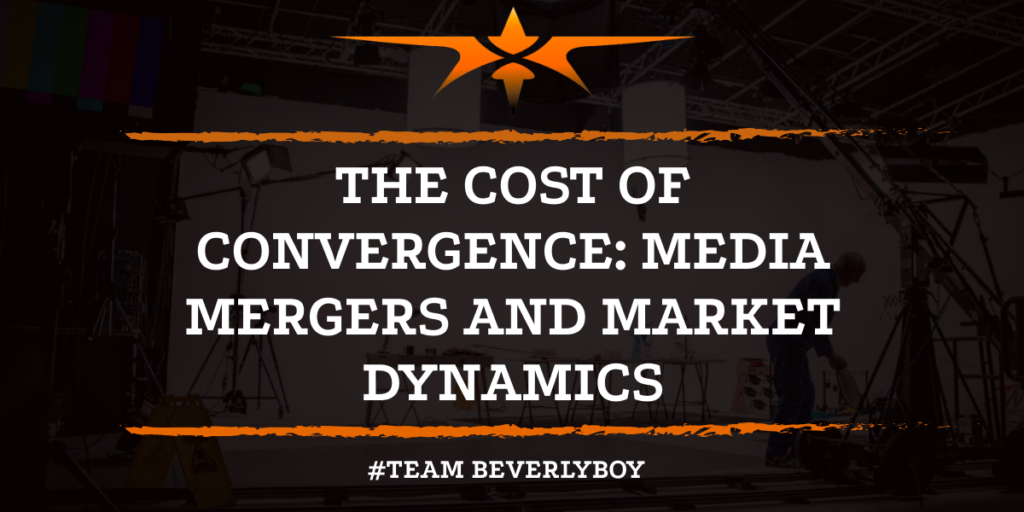THE COST OF CONVERGENCE: MEDIA MERGERS AND MARKET DYNAMICS
Media convergence is rapidly reshaping the way you access news and entertainment by streamlining numerous platforms beneath the umbrella of a few powerful conglomerates. With the rise of digital technology, traditional broadcasters and publishers find themselves joining forces with online platforms, creating more blended media experiences. As this trend accelerates, understanding the economic, technological, and cultural impact of these changes has become essential for anyone navigating the modern media landscape.
These shifts affect everyone, from consumers and creatives to policymakers. As companies seek new ways to remain competitive, motivations for media consolidation range from cutting operational costs to reaching broader audiences and embracing innovative technologies. However, these mergers can result in both opportunities and challenges, raising questions about diversity of content, regulatory oversight, and the future of creative industries.
WHAT ARE MEDIA MERGERS IN A CONVERGED MARKETPLACE?
Media convergence involves bringing together different types of media—including television, print, streaming, and social networks—to create integrated content channels under unified ownership. In today’s dynamic media environment, cross-platform assets provide a competitive edge for companies wanting to deliver cohesive experiences. Media mergers are primarily driven by goals like cost reduction, broader reach, and improved technological capabilities that allow content to be shared seamlessly.Despite these efficiencies, media consolidation means a few corporations control more market share, which may affect the variety of viewpoints and the overall competitive tone of the industry.
Historically, certain deals have had major effects on the industry. Highly visible mergers such as AOL-Time Warner and Disney’s acquisition of Fox highlight how high the financial and strategic stakes can be. Some mergers have enabled shared expertise and technology, enhancing products and services; others have led to job cuts or loss of focus on quality reporting. These examples underline the ever-evolving demands of the digital ecosystem and the constant need for adaptation.
MARKET COMPETITION AND THE IMPACT OF MERGERS
Mergers and acquisitions can reshape the competitive landscape of media, directly influencing what you see and hear. When just a handful of companies wield significant power, smaller firms may struggle to negotiate, potentially leading to higher ad rates and fewer choices. This market concentration often results in a narrower spectrum of voices, as larger conglomerates focus on reliable, profit-driven content over diverse or innovative offerings.
You might notice fewer independent viewpoints or less risk-taking, which can impact everything from local journalism to global entertainment. Media mergers also tend to create barriers that make it harder for startups and independent content creators to break through. As corporate giants grow larger, their control over content delivery and pricing can stifle the environment that has traditionally encouraged fresh ideas and new entrants. Both consumers and small companies face tougher odds when navigating a space dominated by these major players.
OVERSIGHT OF MEDIA CONSOLIDATION: REGULATION AND RESPONSIBILITY
Regulatory agencies such as the Federal Communications Commission (FCC) are vital to ensuring that media mergers don’t devolve into monopolies. By upholding antitrust laws, these organizations aim to maintain competitive, fair markets and protect consumer interests. However, enforcement is complex in fast-changing digital markets, and ethical concerns, like bias or conflicts of interest, persist when ownership becomes highly concentrated.
When profit is set above all else, media integrity may be at risk. This brings ongoing challenges in maintaining transparency, diversity, and the reliability of news reporting. Finding the right balance between economic efficiency and ethical standards is a pivotal task for all stakeholders.
TECHNOLOGICAL INNOVATION AND MEDIA CONVERGENCE
The relationship between media market consolidation and technological innovation is both promising and precarious. Mergers can combine resources to accelerate advancements, such as new streaming platforms, immersive storytelling formats, and algorithms that personalize content. When companies share knowledge and infrastructure, they may deliver more accessible and user-friendly media experiences.
On the downside, concentrated ownership may lessen the competitive drive needed for ground-breaking innovation. If only a few businesses manage most technology and capital, the willingness to invest in bold new ideas can decline. This dynamic could restrict your access to unique or disruptive forms of media.
-Key motivations for mergers: operational savings, larger audiences, enhanced technology.
-Rising consolidation may limit viewpoints and raise advertising costs.
-Effective regulation is crucial but faces new challenges in digital markets.
-Bigger companies can drive technology, but concentration might slow creative progress.
EVOLVING TRENDS AND THE FUTURE OF MEDIA
Trends in digital transformation and globalization will continue to shape how media is produced and consumed. A shift toward short videos and tailored streaming signals that you, as a consumer, demand flexibility and personalization. For media companies, quickly interpreting and adapting to these shifts is critical for long-term survival.
Policymakers, industry leaders, and viewers like you all contribute to a delicate balance. Supporting diversity in ownership, fostering open competition, and upholding journalistic standards are vital to ensuring a healthy and innovative media landscape in the face of ongoing convergence.
TAKEAWAYS
Media mergers have far-reaching consequences for economic choices, content diversity, and technological development. As market dynamics evolve, staying informed allows you to play a role in supporting a robust, ethical, and diverse media environment for the future.


